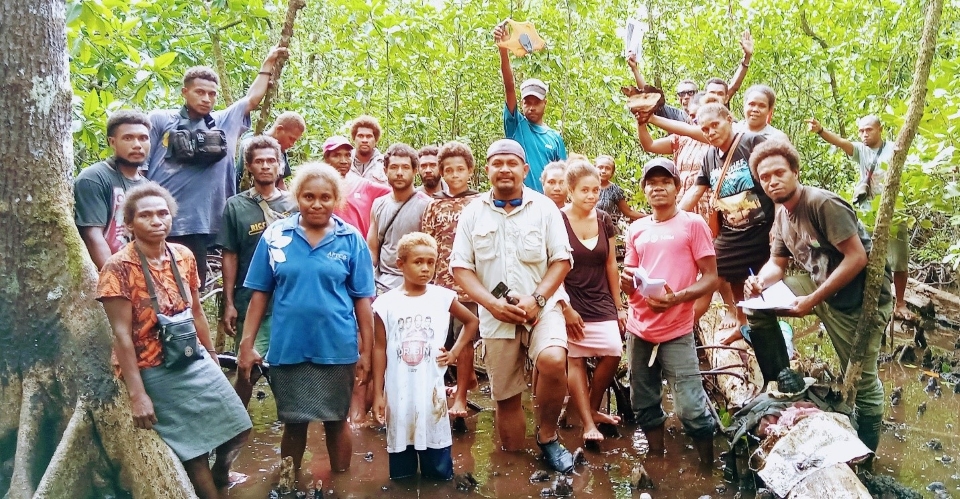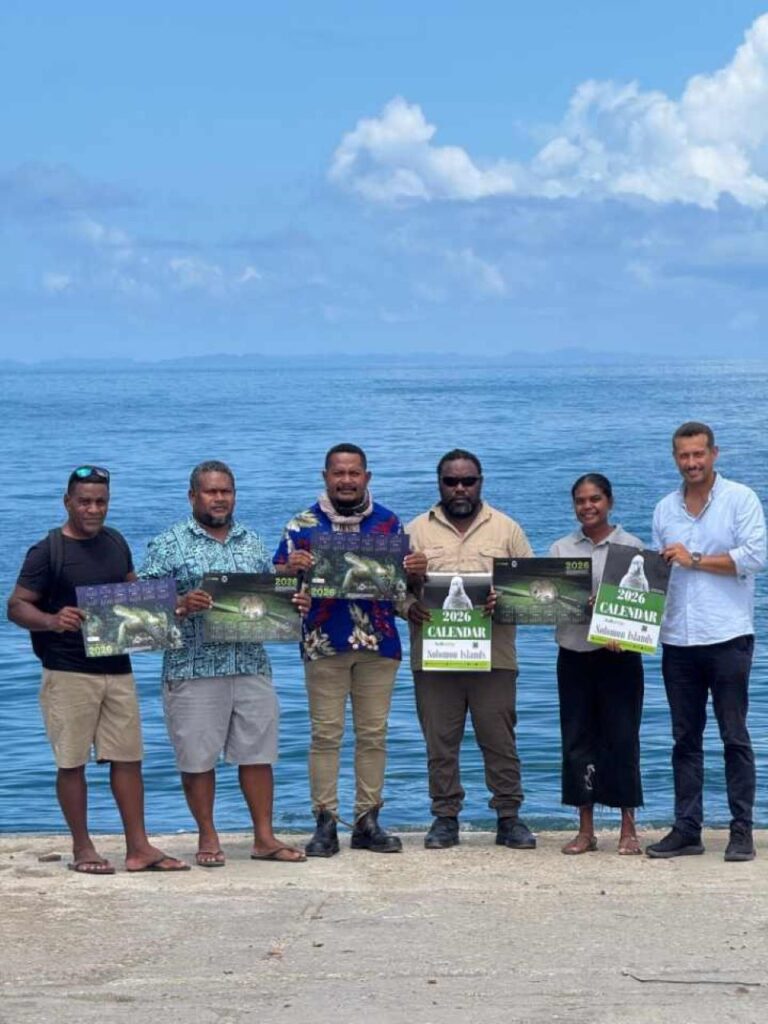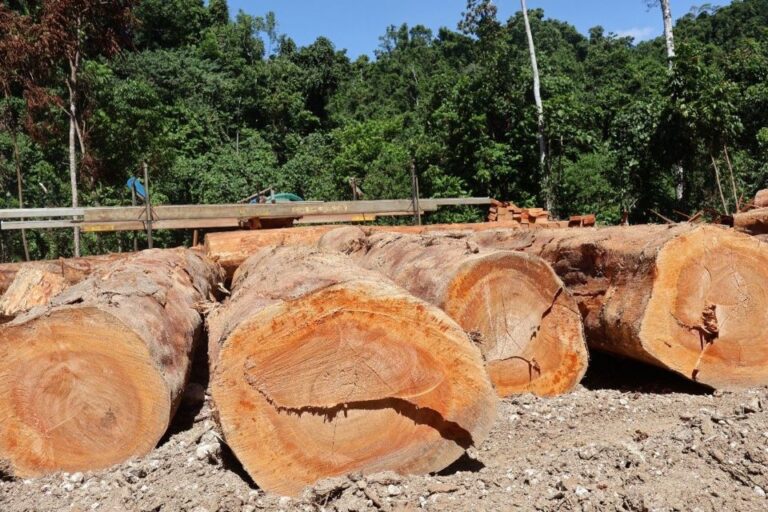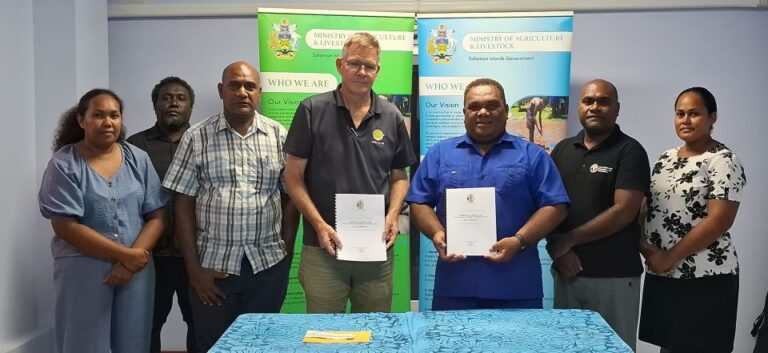BY JOHN HOUANIHAU
APUNEPARA Ha’amwaora Natural Resource Association, a community-based organization in South Malaita, has recently embarked on a mission aimed at equipping the tribal community for the conservation and protection of its terrestrial forest and mangrove ecosystems.
Solomon Islands Rangers Association (SIRA) Technical Consultant Albert Chris Kwatelae told ENVIRONMENT MEDIA that Reginald Wate and Grayham B. Tahu, founders of the Apunepara Ha’amwaora Natural Resource Association (AHNRA), have recognized the need for tribes and community members to manage their natural resources due to population growth and overharvesting.
“The Association founders, Reginald Wate and Grayham B. Tahu, have united with a mission and vision to support community members with conservation initiatives to protect the community’s terrestrial forest and mangrove ecosystems due to the increase in population, overharvesting, related threats from unsustainable logging, expansion of settlements, betel nut plantations, slash and burn farming, and gardening,” he revealed.
Chris said that Mr. Wate and Mr. Tahu are advocating for sustainable livelihood activities that balance ecosystems, maintain cultural practices, and reduce threats to natural resources.
Kwatelae stressed the necessity of establishing AHNRA due to the significant threat of sea level rises, saltwater intrusion, inundations, and climate change-related natural disasters.
“Mr. Wate and Mr. Tahu are two community champions and change makers. They lead the association, have applied for some small grant funding, and are expanding their networks.
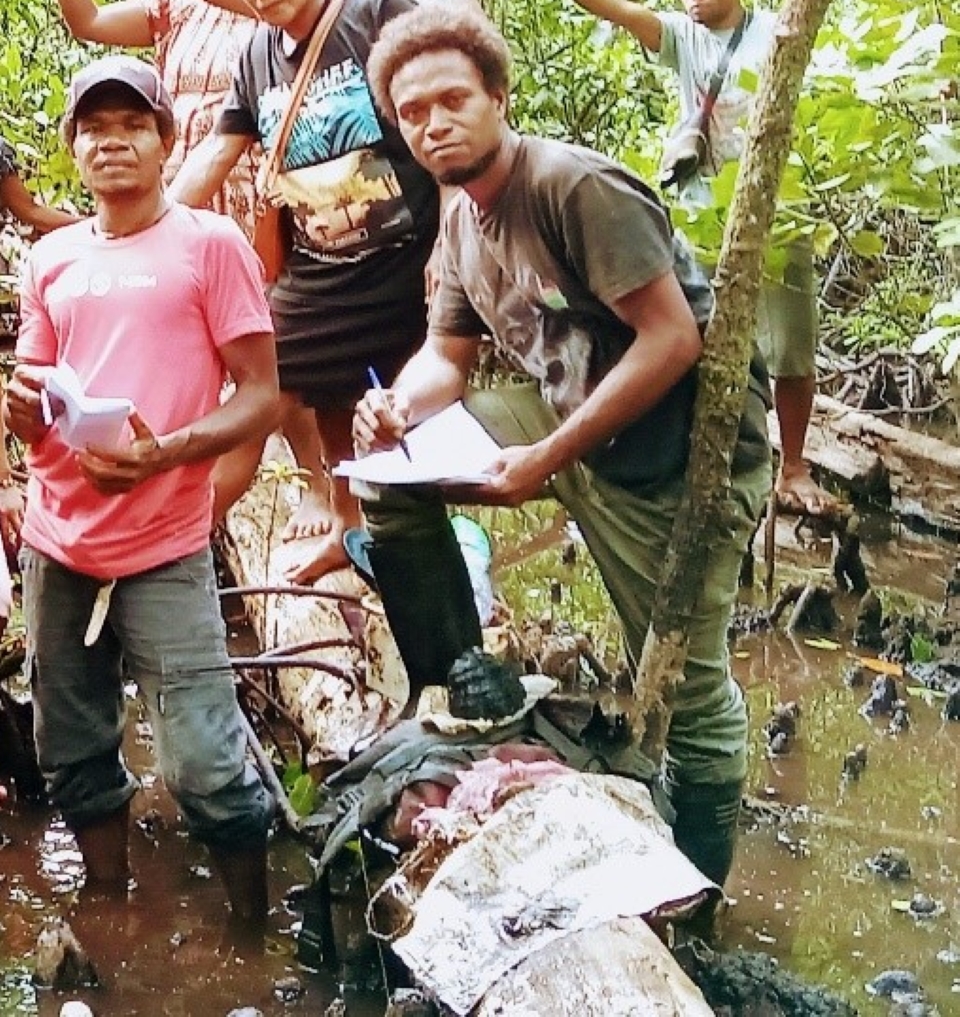
“One of the funding supports they received was from US Aid through the SCALE Project implemented and facilitated by Win Rock in Malaita Province.
“Thus, AHNRA Rangers and tribal members received Protected Areas (PAs) Management and Ranger Operation Training and Capacity Building from May 20th–23rd, 2024. It was hosted in Waitomo village, Raroisu’u ward 21, Maramasike Passage,” the Solomon Islands Rangers Association (SIRA) Technical Consultant said.
Kwatelae noted that 30 rangers and community representatives from five villages—Watoto, Sarawasi, Eliote, We’a, and Malo’u—participated and trained.
“Solomon Islands Rangers Association was invited to conduct the training. Among the list of topics in the course, the Mangrove Forest Ecosystem Survey and Data Collection technique was taught to these rangers. It involves identifying and listing common mangrove species known to them and used for various uses and benefits. From socio-economics to ecological services and benefits.
“It’s good to see such work led by tribes, communities, and resource owners via their established community-based organization (CBO). In my opinion, in any land and natural resource development and extraction in the Solomon Islands, tribal groups or members must be organized. They must have a plan for their land and investments that sustainably supports them in the long term to achieve their goals.
“The AHNRA tribe is gearing towards PA recognition and working on their application. Mangrove species are their flagship species in promoting conservation in the Solomon Islands. They also have ecotourism aspirations and a carbon trade program. This kind of initiative is good for the Solomon Islands because we are working towards our national targets under some of these United Nations Conventions on Biodiversity and other regional and international treaties signed by our past successive governments as our commitments to the global community.
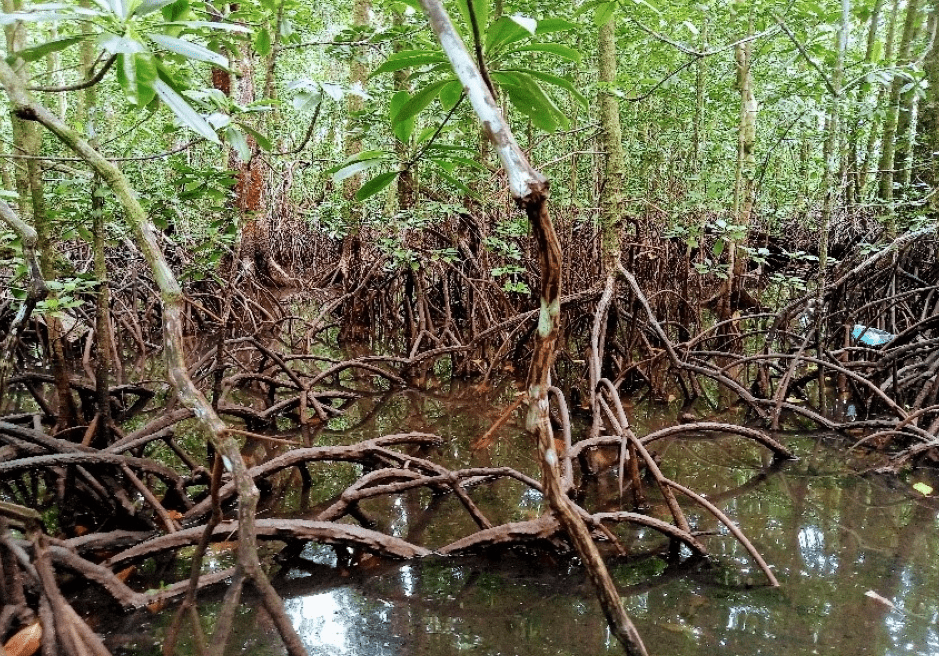
“Like other existing and supporting partners to AHNRA, the Solomon Islands Rangers Association was so privileged to conduct this capacity building for the enthusiast and high-esteem indigenous rangers and community champions of the southern region of Malaita,” he said.
Meanwhile, SIRA has collaborated with AHNRA rangers to celebrate World Environment Day 2024.
“SIRA recently partnered with the AHNRA Committee, forest rangers, and USAID to celebrate the theme of World Environment Day 2024: “Land Restoration, Desertification, and Drought Resilience,” he said.

